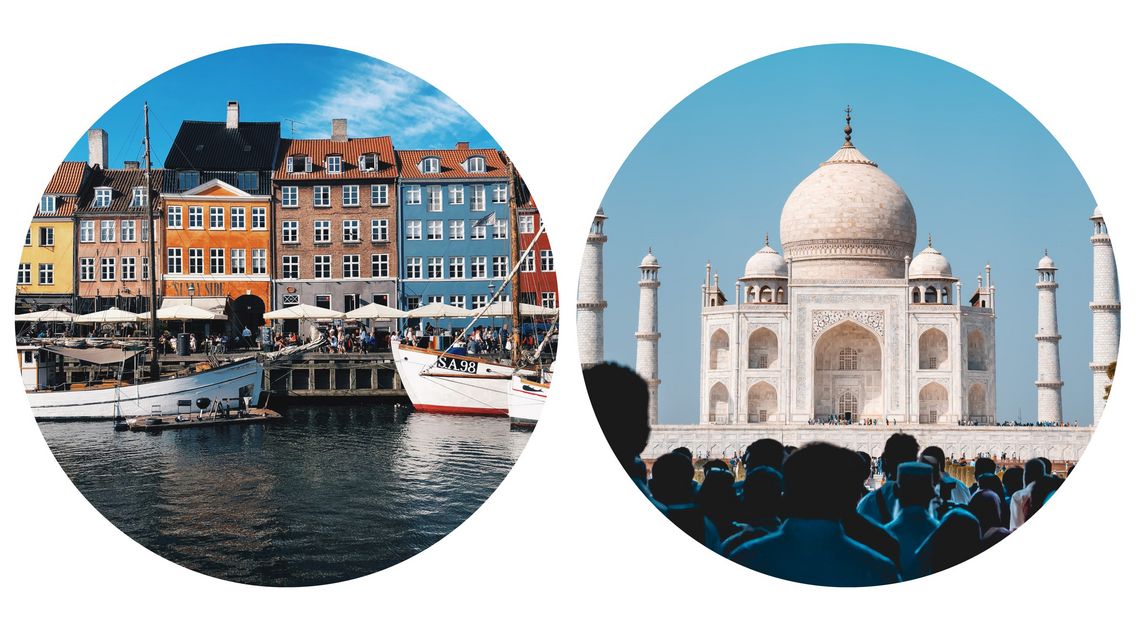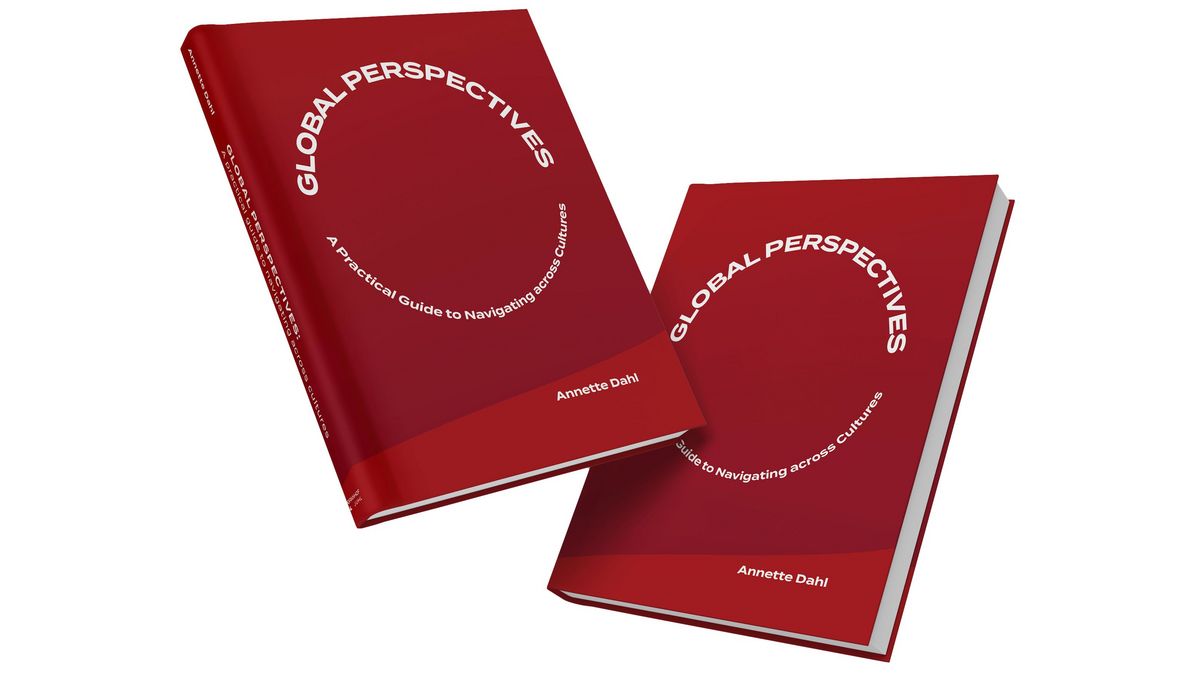
Trust in Work Relationships: Denmark vs. India
Most people will probably agree that trust is the foundation of good collaboration.
But how you create trust in work relationships – and how you can risk losing it again – largely depends on which work culture you are part of.
In this blog post, we take a look at trust in Danish and Indian work culture by answering the following three questions from a Danish and Indian perspective:
- How do you gain trust in a new business partner?
- Is it a good idea to keep your work and private life separate?
- How do managers and employees lose trust in each other?
Many thanks to our Denmark Country Specialist, Annette Dahl, and India Country Specialist, Rana Sinha, for their input on Danish and Indian work culture!
How do you gain trust in a new business partner?
DANISH PERSPECTIVE:
There’s a very high level of trust in Denmark, which also includes people you don’t know personally.
When you enter into an agreement with a new business partner, you typically have complete trust in that person from the start (but this may change if the business partner doesn’t stick to your agreements, for example).
Spending a lot of energy getting to know each other personally before getting down to business is seen as a waste of time and energy by many people – you focus on the task you have to collaborate on, not on the person you have to collaborate with.
You basically trust that the contracts and agreements you have entered into will be respected, and you don't spend much energy double checking.
INDIAN PERSPECTIVE:
Personal relationships are the very foundation of trust in a new business partner.
Before talking business with a potential new business partner, you start by getting to know each other, eating together, talking about personal matters and showing each other who you are.
It doesn't make sense to start collaborating before getting to know a potential new business partner well – so you know you can trust each other and are both interested in a long-term collaboration. You risk wasting a lot of time if the business partner later turns out to be unreliable.
When it comes to having confidence in contracts and agreements, this largely depends on whether you trust the people with whom you have entered into the contract/agreement.
Is it a good idea to keep your work and private life separate?
DANISH PERSPECTIVE:
The authors of Riding the Waves of Culture: Understanding Diversity in Global Business (Trompenaars & Charles Hampden-Turner, 4th edition, 2020) asked employees from a number of countries the following question in a survey:
“A boss at your workplace asks you to help him paint his house. How do you respond?”
Among Danish survey participants, 83% say no – they would NOT help paint the house. Your boss is the boss at work, but you have no special obligations towards him in your private life.
The result is consistent with the widespread view of Danes as a people who cherish their privacy.
Most Danes prefer to keep work and private life separate. At work, you’re with your colleagues. In your private life, you’re with family and friends.
It’s not impossible that your colleagues may one day become your friends. But often, it doesn't happen.
Many Danes build their ‘circle of friends’ in their younger years. So if you meet a Dane later in life, it can be very difficult to be ‘included’ as a friend; a condition that many international employees feel. Studies show time and again that having few ‘local Danish friends’ is one of the biggest challenges for expats in Denmark.
So the trust that exists between manager and employee in Denmark is typically built and maintained at work. And there can easily be a strong and trusting working relationship between manager and employee, even if the two never do anything together outside of the workplace.
INDIAN PERSPECTIVE:
In India, work and private life merge to a much greater extent than in Denmark. As you build relationships with colleagues and other business connections, you get more involved in each other's lives.
It’s quite common for you to go out with your colleagues in the evening or at the weekend. And that you invite colleagues home for dinner, where they meet your family.
It all helps to strengthen personal relationships and at the same time build trust.
Most Indian bosses will not paint their own houses and will not ask their Indian white-collar employees to do that either, as the bosses will hire professional painters for such jobs.
But many Indian employees would feel obliged to help the manager in other non-work-related ways if asked, because the manager-employee relationship is not exclusive to the workplace.
And this sense of obligation goes both ways; as an Indian boss, you are also expected to involve yourself in the lives of your employees.
In the book Riding the Waves of Culture: Understanding Diversity in Global Business, the authors refer to another study in which participants are asked whether it is the employer’s responsibility to help employees with housing. In Denmark, 84% say that it is NOT the employer’s responsibility, while the corresponding figure for Indian participants is only 46%.
How do managers and employees lose trust in each other?
Trust is a precious and fragile commodity. Building trust in a working relationship can be time-consuming. But on the other hand, it can be lost in an instant.
Below are a few examples of what can undermine the trust between manager and employee from a Danish and Indian perspective.
Notice how the same action can sometimes be interpreted as a sign of trust from a Danish perspective and a sign of mistrust from an Indian perspective.
And use the examples to remind yourself how actions can be interpreted very differently depending on what cultural experiences you may have.
DANISH PERSPECTIVE:
- As a manager, if you frequently follow up on your employees’ tasks and in detail, many employees would interpret this as a lack of trust in them.
- Employees could also interpret it as a lack of trust if you, as a manager, insist on making even the smallest decisions, rather than leaving employees to make decisions themselves.
- As an employee, if you discover problems in a project you’re involved in, the manager would expect you to draw attention to it. Not doing so would result in a breakdown of trust between you.
- As an employee, if you make a mistake and tell your manager about it, most managers would shrug it off (we all make mistakes and it’s okay as long as we learn from them). But if you try to hide a mistake, and your manager finds out, they would typically see it as a serious breach of trust.
INDIAN PERESPECTIVE:
- As a manager, if you frequently follow up on your employees’ tasks and in detail, many employees would interpret this as a sign that the task is important and that you, as the manager, want to support them – and not as a sign of distrust in them.
- As a manager, if you leave a lot of responsibility and decisions to your employees, some employees may see it as a sign that you don’t know the direction – and they will lose confidence in you.
- If there are problems in a project, but as the manager you haven’t established good personal relationships and trust with your employees, you shouldn’t expect them to draw attention to the problems.
- Some employees may try to cover up mistakes they’ve made – due to a high risk of them being seen by the manager and others around them as a sign of incompetence, and worst case, resulting in consequences for their job.
Use your cultural background knowledge as a guide, not a checklist
In this blog post, we've explored the following questions from a Danish and Indian perspective:
- How do you gain trust in a new business partner?
- Is it a good idea to keep your work and private life separate?
- How do managers and employees lose trust in each other?
In the answers to the three questions, we've outlined some general patterns in Danish and Indian work culture.
You cannot use the answers as a checklist on how to build trust with your specific Danish or Indian colleague.
Because, in addition to national work culture, there are plenty of other factors that can have an impact on how we gain trust in each other.
There may be regional cultural differences, generational differences and differences in industry and organizational culture. Besides that, we all have our own unique personality and preferences that we bring into our work life.
So use the answers as background knowledge when you navigate the two work cultures – but be prepared to adjust and nuance your knowledge if your experiences in working with your Indian or Danish colleague point in a different direction.
How do you and your global business partner create a trusting working relationship?
When you collaborate across cultural differences, it’s always a good idea to be curious about the perspectives that you and your global partners have on how to achieve a trusting collaboration.
At C3, we have plenty of tools that you can use to explore your own perspectives and those of your global colleagues – and adapt your working style to create the best results in your cross-cultural collaboration.
You can find our most important cultural tools here.
Where to go from here
Can we help you to navigate the interplay between Danish and Indian work culture? Check out our country-specific training programs:
- Indian cultural training
- Danish culture for your local staff
- Danish culture for international employees in Denmark
You are also very welcome to contact us for a chat about how we can help you create trusting working relationships across cultural differences.
Want more tips on how to best collaborate across cultures? Follow us here on LinkedIn – and sign up for our newsletter using the form below.

